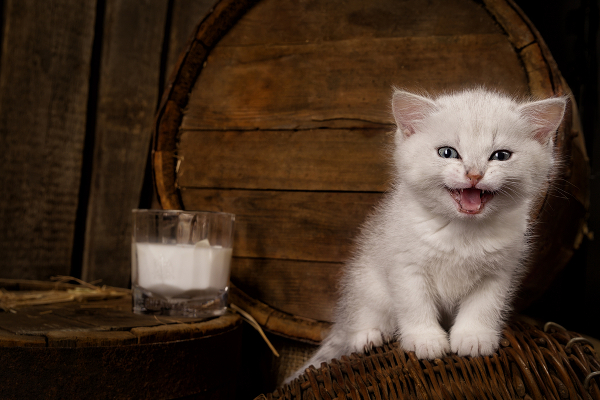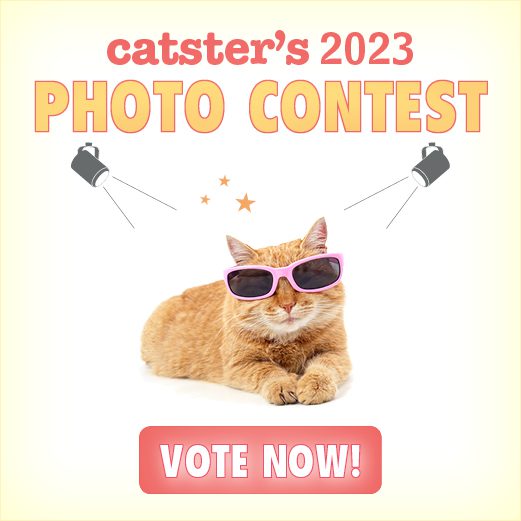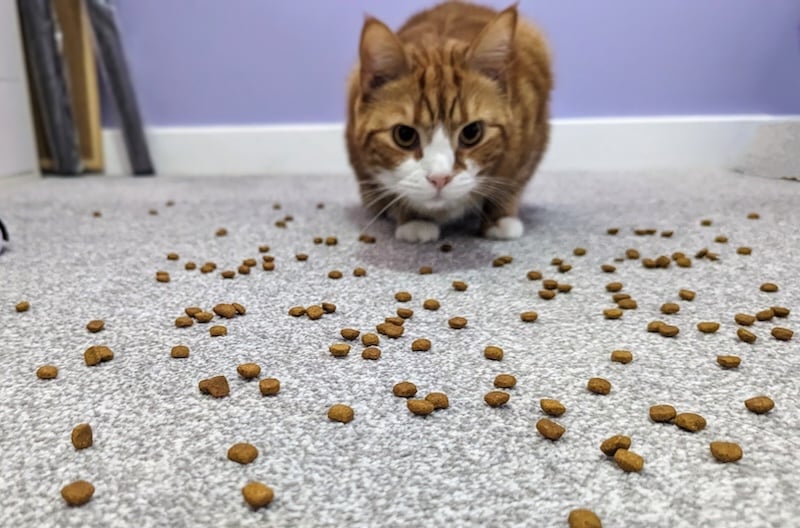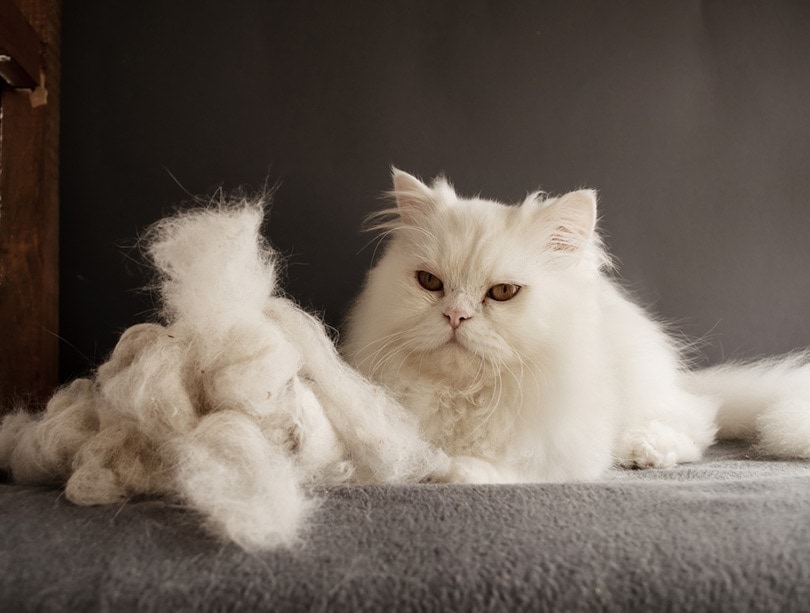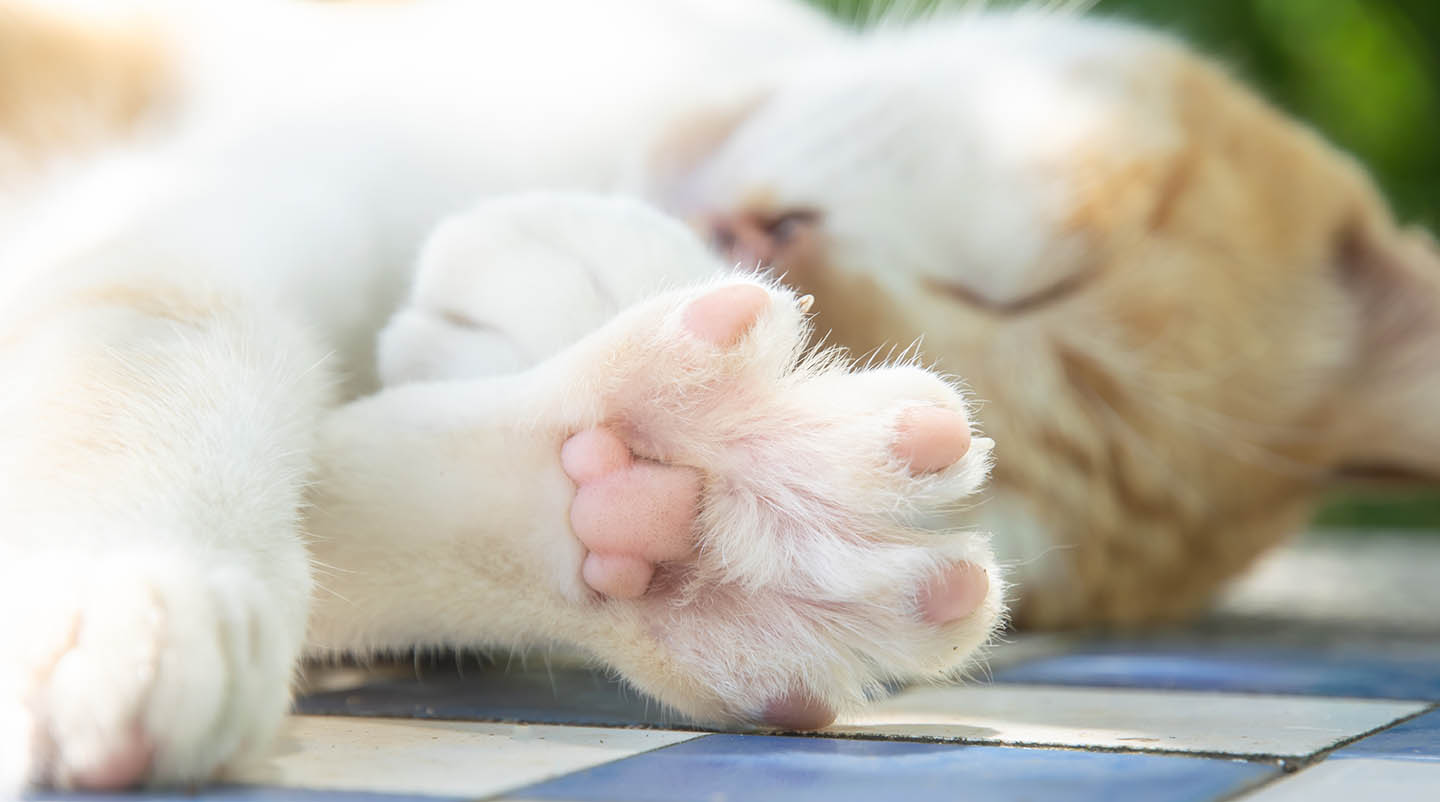Call the Midwife is one of my favorite television shows, and I can hear the adamant voice of Sister Evangelina insisting that, where infant nutrition is concerned, “The breast is best!” This dictum isn’t meant to be totalizing; after all, sometimes circumstances intervene and the mother may be unavailable or unable to feed her kittens. In situations like that, are kittens allowed to drink cow’s milk? Is lactose-free milk okay for cats? What do kittens drink? Is milk from any source beyond the mother considered acceptable sustenance for any feline, from kittenhood through seniority?
Kittens derive far more than simple nutrition from their mother in the eight to 10 weeks that they spend nursing. Once weaning is complete and cats move on to more adult foods and water dishes, both their need for milk and their ability to digest it at volume are practically nonexistent. Let’s take a closer look into cat nutrition, from the whelping box to old age, and see why giving any kind of milk is not only redundant, but possibly harmful. Some topics we’ll cover when it comes to kittens and milk:
- Mother cat and newborn kitten care
- Bottle-feeding kittens in mother’s absence
- Can kittens drink cow’s milk?
- Are cats lactose intolerant?
- Are milk substitutes, like lactose-free milk, okay for cats?
- Why do cats like milk?
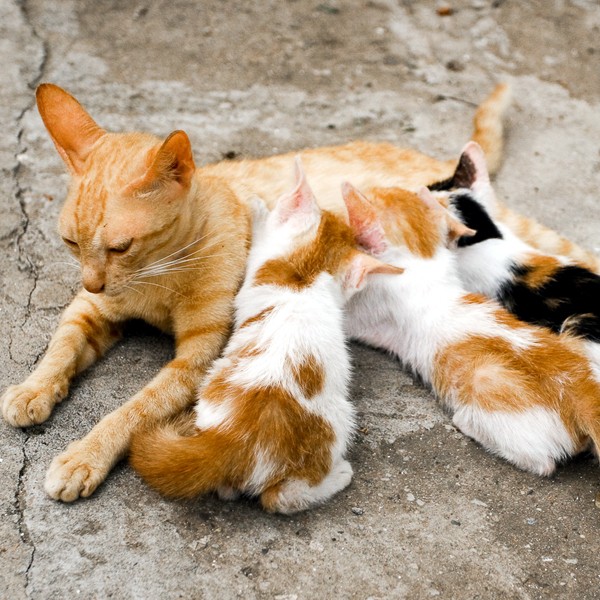
Newborn kitten care and nutrition
From the foundational myth of Romulus and Remus, suckled by a wolf, to Internet-age tales of cats nursing puppies, we’ve always been fascinated by narratives in which maternal nourishing transcends species. While these things do happen in story and fact — both to the mother’s credit and the infant’s benefit — the best milk for a kitten is drawn from the mother’s own teat, and its optimal nutritional value is only during the first eight to 10 weeks of life.
The nutritional content of a nursing cat’s breast milk is designed not only to feed her young, but also to prepare them in a variety of ways for life after weaning. Colostrum, the first milk that newborn kittens receive in their first day or so after whelping, is responsible not only for providing nutrition, but also for the transfer of crucial maternal antibodies. Once the first milk is depleted, and for the rest of the time she is lactating, a cat’s milk becomes richer in protein and fat.
Fats in particular assist in the development of the kitten’s nervous system, and cat milk has one of the highest fat concentrations among all mammals. Mother’s milk provides essential building materials for a kitten’s developing body and prepares the cat to transition from milk to a mature diet; this is the very definition of the weaning process. Milk is only needed by a kitten during the nursing phase, and even then, mother’s protein- and fat-rich milk eventually sees the suckling babe yield to the obligate carnivore.
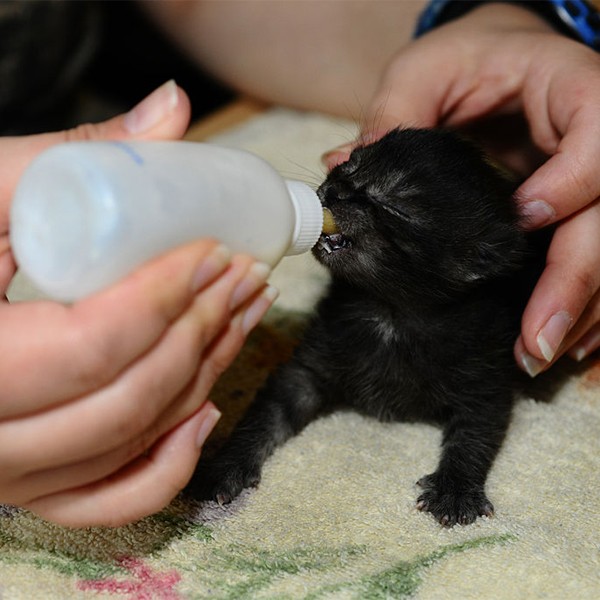
Bottle-feeding kittens
Whether by accident or biological circumstance, it is an inconvenient truth, as Al Gore might call it, that not all kittens can be nursed by their mothers. Should you find yourself raising orphaned newborn kittens during the critical first two months of life, there are specially formulated kitten milk substitutes. These baby-formula equivalents can be bottle-fed to pre-weaned kittens at regular intervals, and contain most of the essential nutrients that they would otherwise get from their mother.
Consult with your veterinarian as soon as possible if a newly delivered mother seems unwilling to or incapable of feeding her whelps naturally. The vet can recommend the best available milk substitute and help you establish a proper feeding schedule. Note that the do-it-yourself method can get a bit involved, since, for the first few weeks of life, newborn kittens can only defecate and urinate when their genitals are stimulated by mother’s loving tongue. Your vet probably has some ideas about that sort of thing as well.
Are cats lactose intolerant?
The idea of using your own tongue to help a kitten pee or poop is, of course, bizarre, but it is no stranger than wanting to feed kittens with cow’s milk. The pleasure that humans take in seeing a kitten lap at a dish of so-called “regular milk” has persisted for centuries, advanced in literature, art and, today, in cute kitten photos on the Internet. It is a purely human pleasure, though. Though kittens may lap greedily, their ability to process and digest milk after they’ve been weaned necessarily decreases.
Science leads, and it tells us that cat taste buds cannot perceive sweetness of milk and that their digestive systems do not produce enough of the enzyme lactase to fully digest it. One of the great appeals of milk, at least to the human palate, is the presence of lactose, a sugar that is broken down and processed by a digestive enzyme called lactase. Once a kitten is prepared to eat solid food, the body’s ability to fully process milk declines sharply.
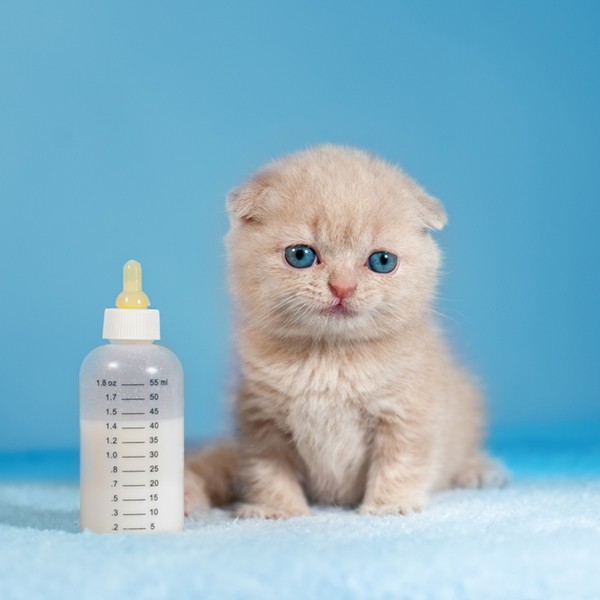
Being lactose intolerant or lactose sensitive means that any lactose beyond a certain limit cannot be fully digested, processed, and excreted. Any excess lactose lingers in the digestive tract, interacting negatively with bacteria, absorbing water, and generally wreaking havoc. Diarrhea in cats and kittens is one of the primary symptoms of lactose intolerance.
What milk can kittens drink? Are lactose-free milks okay for kittens?
There are other varieties of milk. For instance, people increasingly ask whether goat milk for cats is an acceptable treat. Goat milk for kittens is a little more salutary than cow’s milk, but the difference between them is negligible at best. A cup of goat’s milk has only one less gram of sugar in it than a cup of cow’s milk.
What about milks derived from plant matter? Can cats or kittens drink lactose-free milks like soy or almond milk? These milk substitutes may be safer for people who are sensitive to lactose, but that does not make them any easier for felines to digest. After all, many soy and almond milks still contain sugars to improve their flavor to humans. Replacing one sugar with others does your kitten no favors.
If you must offer your kittens or cats cow’s milk, proceed cautiously. Start with very small quantities to determine their tolerance for it, and offer it only occasionally.
Read more about kittens and milk on Catster.com:
- You Found a Stray Kitten — Here’s What to Do
- 5 Health Tips About Cats, Kittens and Cow’s Milk
- Is it Safe for Cats to Drink Milk?
About the author: Melvin Peña trained as a scholar and teacher of 18th-century British literature before turning his research and writing skills to puppies and kittens. He enjoys making art, hiking, and concert-going, as well as dazzling crowds with operatic karaoke performances. He has a two-year-old female Bluetick Coonhound mix named Baby, and his online life is conveniently encapsulated here.

